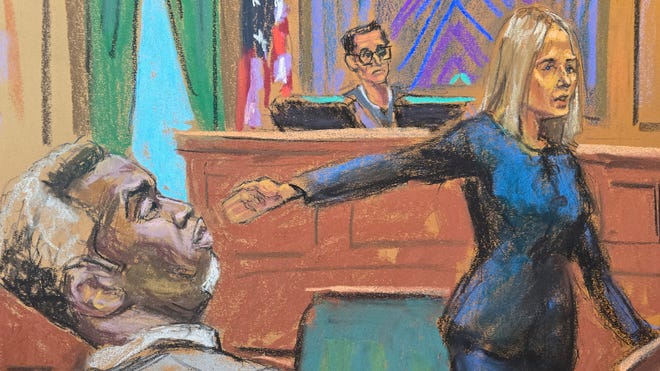Sean ‘Diddy’ Combs Convicted on Lesser Sex Crime Charges
Sean ‘Diddy’ Combs was recently exonerated of primary allegations and was declared guilty of less severe accusations related to sex crimes, as a result of his extended federal trial lasting nearly two months. The 12-member jury arrived at a divided verdict on July 2 in the Combs case, that had been ongoing since May 5 at the federal court in Manhattan. They concluded that Combs was accountable for two instances of instigating prostitution, whereas they dismissed the grave charge of racketeering as well as both counts of sex trafficking.
The trial of Combs has attracted significant attention, making it one of the most prominent cases in the post-#MeToo era. This case comes in the backdrop of other high-profile lawsuits against personalities such as Harvey Weinstein, R&B artist R. Kelly, and actors like Kevin Spacey and Johnny Depp. The Combs case was particularly complex as it navigated through intricate issues of consent and coercion, celebrity influence, convoluted workplace environments and, not to mention, trauma.
The charges due to which Combs was convicted were based around the involvement of two of his ex-girlfriends and some sex workers whom he allegedly transported for prostitution purposes. The potential punishment for the rap mogul can total up to 20 years of imprisonment, as each offense levies a ten-year maximum penalty.
Since his apprehension on September 16, 2024, Combs has been held at the Metropolitan Detention Center in Brooklyn. The prosecutors remonstrated against the defense’s appeal for Combs to be discharged immediately after the verdict was pronounced.
Federal prosecuting attorneys contended that Combs was the spearhead of a ‘criminal organization’ involved in an array of illicit activities such as sex trafficking, abduction, drug crimes, and enforced labor, among others. They suggested that Combs utilized his affluence and fame to accommodate his sexual predilections, which, they claimed, were part of a recurrent and widely recognized pattern of abuse.
Despite the guilty verdict on lesser charges, the ruling is being interpreted as a partial win for Combs. The charges that led to his conviction were breaches of the Mann Act, relating to the transportation of individuals with the intent of facilitating prostitution.
The trial of Combs sparked immense media interest, leading to exhaustive coverage over the two-month duration. Interestingly, the prevalent opinion among journalists was predominantly convivial, despite the long courtroom proceedings. The reporters appeared to form a unique camaraderie, perhaps brought together by the daily routine at court.
Owing to the limited seating in the primary courtroom where Combs was being tried, news outlets resorted to hiring line-sitters to secure a spot. Some of these placeholders would stake out their position from the previous afternoon to ensure their employers would not miss out on the next day’s proceedings.

